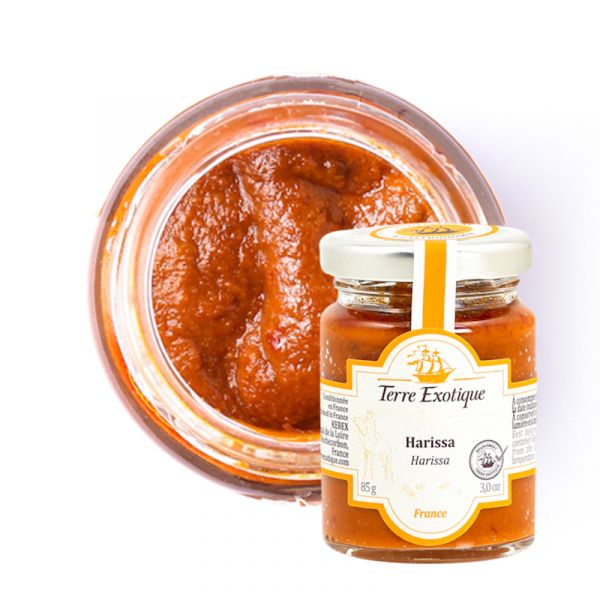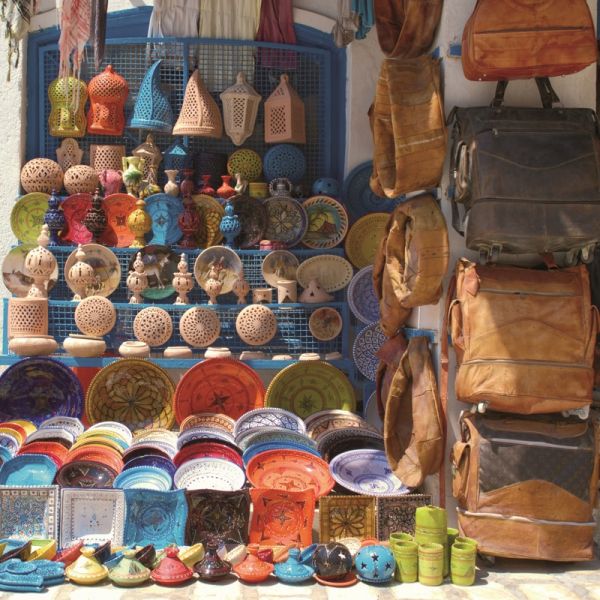





How to Use Harissa in Cooking?
In Metlaoui, it is traditionally consumed on bread with olive oil as an accompaniment to couscous, tagines, and steamed fish. Harissa is also the name of a Tunisian pastry made from almonds, sugar, melted butter, and orange blossom water.
Some Recipe Ideas Using Harissa
- Spicy Harissa Hummus: Add a tablespoon of harissa to your homemade hummus for a spicy and flavorful version.
- Roasted Chickpeas with Harissa: Coat cooked chickpeas in olive oil and harissa, then roast them in the oven for crispy and spicy snacks.
- Harissa Couscous: Add harissa to your couscous preparation for a spicy flavor. Pair it with vegetables, dried fruits, and herbs for a complete dish.
- Harissa Sauce for Tacos: Mix harissa with sour cream to create a spicy sauce to accompany tacos, fajitas, or burritos.
- Harissa in Soups: Incorporate harissa into soups like tomato soup or lentil soup for a spicy flavor.
- Chicken Marinade: Mix harissa with olive oil, lemon juice, garlic, and herbs to create a flavorful marinade for chicken. Grill or roast the chicken for an explosion of flavors.
What Are the Flavors of Harissa?
Primarily made of red peppers, garlic, sunflower and olive oil, and other spices, harissa offers a delicate balance between spicy heat and deep earthy flavors. It can be used to enhance the flavor of various dishes, adding a vibrant touch to everything from marinades to sauces, grills to stews.
Harissa, the North African Spice with Tunisian Roots
Harissa has deep roots in Maghrebi cuisine, and its origin is often attributed to Tunisia. This spicy condiment derives its name from the Arabic "harasa," meaning "to crush" or "to knead," referring to the process of preparing the peppers. Traditionally, harissa was handcrafted by crushing hot red peppers with other spices.
Harissa, Primarily Tunisian
As the cradle of the most prestigious civilizations and major monotheistic religions, Tunisia has been a crossroads of civilizations that have gradually shaped its culture. Harissa comes from the Arabic "harasa," meaning "to crush" or "to pound." It is an essential paste in Tunisian cuisine. To obtain it, the peppers are dried in the sun, then ground with cumin, coriander, garlic, and salt.
| Price/kg | 78,82 |
|---|---|
| Allergen | Absence |
| Native country | FRANCE |
| Ingredients | red chilli pepper (no-UE) (33%), tomato, sunflower oil, |
| olive oil, garlic, salt, | |
| spices (4%, with cumin and coriander) | |
| Nutritional Info | VN Energie pour 100 g (energy for 100g) : 1105 kJ / 268 kcal VN Matière grasse (fat) : 23 g Dont acide gras saturés (of which saturated fat) : 2.7 g VN Glucides (carbohydrate) : 9.4 g Dont sucres (of which sugars) : 3.9 g VN Protéines (protein) : 8.5 g Vn Sel (salt) : 3.3 g |
| Contenance | 85g |
| TRACES EVENTUELLES D'ALLERGÈNES | céleri, sésame, moutarde, fruits à coques. |
 Français
Français 

